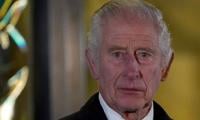Pakistan has said it has identified the main mastermind behind last month’s bombing in Johar Town, Lahore as an Indian national who has “clear links” with RAW – India’s external intelligence agency. Three people had been killed and over 20 injured as an explosives-rigged vehicle blew up in a residential neighbourhood in Lahore on June 23. On Sunday, NSA Moeed Yusuf stated unequivocally in a press conference that ‘concrete evidence’, including telephonic and financial records, had been unearthed during the investigation – and it all points to India. More worryingly, he revealed thousands of cyberattacks on the country’s investigative infrastructure in a purported attempt to thwart the probe into the attack. The government has also said that the Jadhav case already amply proves Indian involvement in destabilising Pakistan. Meanwhile, the foreign minister has vowed to - once again – share with the world evidence of India’s nefarious designs and funding of terrorism inside Pakistan, while Prime Minister Imran Khan has called for the mobilisation of international institutions against India’s rogue behaviour.
Unfortunately, Pakistan has presented such documented proof in the past as well, with barely any reverberations in the outside world. Besides Jadhav’s video confessions of fomenting terrorism inside the country, last year Pakistan prepared a dossier on Indian-sponsored terrorism and presented it to the United Nations and other key global players. Sharing the dossier’s details in November last year, DG ISPR Maj Gen Babar Iftikhar, along with Foreign Minister Shah Mehmood Qureshi, had revealed features of Indian plans to strike inside Pakistan through activities planned from its consulates in Afghanistan, as well as specifics of funds transfers originating in India for the purpose. The foreign minister had asked the world to take notice of the ‘undeniable evidence’ of Indian plans to destabilise Pakistan. The prime minister, too, had expressed hope that after looking at the “irrefutable evidence” given by Pakistan, the world would not remain “indifferent or silent”, and “force India to end its terrorism”.
However, it appears the world has little to no appetite for Pakistan’s predicaments on this issue and there is obstinate reluctance to accept India as a state sponsor of terrorism. And while senior government figures have called on the FATF to take notice, one should not expect any change of tone vis-a-vis their policies with India. Even before the recent Indian involvement was unearthed, the Johar Town blast’s timing – occurring the day Pakistan’s fate on FATF’s ‘grey list’ was to be decided – and location - the attack took place near the residence of jailed Jamaat-ud-Dawa chief Hafiz Saeed – had raised suspicions of an international conspiracy. The prompt action by police and intelligence agencies - both civil and military - in nabbing the local suspects and unearthing their foreign links is laudable but such smooth inter-agency coordination needs to be an established practice so that authorities can preemptively and successfully counter terror threats. Regardless of the global community’s response, or lack of it, Pakistan’s focus must be on preventing such attacks by busting domestic terror networks of all shades and ensuring swift prosecution based on irrefutable evidence, all the while also making efforts to defeat the domestic extremist mindset. Such actions will speak much louder than any words.
India's Prime Minister Narendra Modi speaks after releasing the Bharatiya Janata Party's manifesto ahead of country's...
Prime Minister Shehbaz Sharif, Pakistan Poeples Party Co-chairperson Asif Ali Zardari, JUI-F chief Maulana Fazlur...
Shahzaib Rind, Pakistan's martial arts fighter from Quetta. — Facebook/shahzaibrindhofficial/FileShahzaib Rind has...
A representational image showing women at a market. — AFP/FileIn the six weeks since he assumed office, not only has...
Country witnessed 432 violence-linked fatalities and 370 injuries among civilians, security personnel, and outlaws
During Raisi’s visit, Iran and Pakistan signed a total of eight accords on varying subjects to enhance cooperation...







